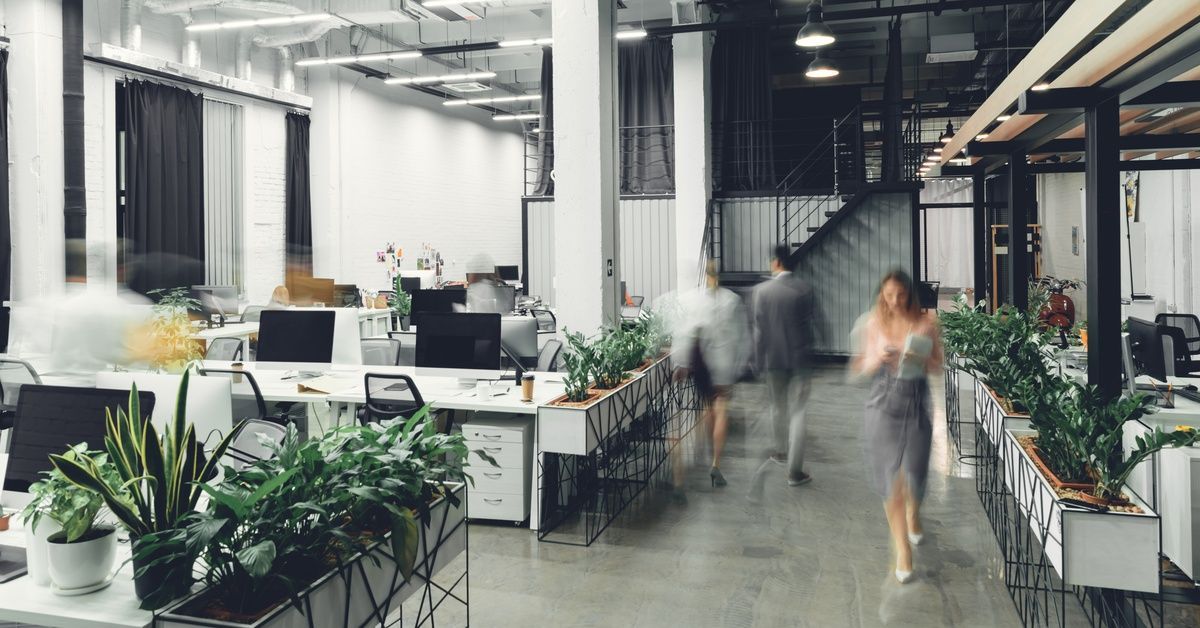How Office Design Can Support Mental Health
A well-designed office space plays a critical role in shaping employees’ mental well-being, engagement, and long-term productivity. Supporting mental health at work is a moral imperative and a strategic investment for professionals in high-stakes industries.
Intentionally designing offices with mental health in mind fosters resilience, creativity, and community among employees. Explore how office design supports mental health and relates to high performance.
Flexible Workspaces Support Autonomy and Reduce Stress
Allowing employees to choose how and where they work within the office has a significant impact on their sense of autonomy and psychological comfort. Flexible workspaces offer zones tailored for deep focus, teamwork, and social interaction, which can accommodate a range of work styles.
Employees transitioning between quiet, library-like spaces for undisturbed concentration and collaborative areas for brainstorming can improve their productivity alongside their overall well-being. Empowering professionals to customize their environment signals trust and encourages them to take ownership of their work.
Access to Nature Alleviates Stress and Improves Mood
The inclusion of natural elements—from potted plants to living walls, and expansive windows to outdoor terraces—is more than aesthetically pleasing. Biophilic design, which connects occupants to nature, provides comfort in the knowledge that life surrounds people amid times of hyper-focus. Even small touches, such as fresh greenery or access to natural light, elevate one’s mood.
Offices that offer views of landscaping and garden spaces or incorporate organic shapes and textures create a more calming environment. Making nature a central part of your workspace fosters relaxation and encourages creative thinking, which is essential for problem-solving and innovation.
Stress-Free Zones Offer Spaces to Recharge
Professionals in demanding fields face daily pressures that erode their focus and well-being. Integrating stress-free zones, such as meditation rooms, quiet corners, or designated yoga spaces, creates a buffer against workplace stress. These settings calm employees, featuring soft lighting, comfortable seating, and sound insulation.
Employees may step away from their desks to decompress, practice mindfulness, or simply take a moment to relax. Even brief moments spent in a relaxation area can improve mood, concentration, and control when returning to work.
Improved Air Quality Enhances Overall Well-being
Clean indoor air is a fundamental but sometimes overlooked aspect of mental health at work. Offices with effective ventilation systems, low-VOC materials, and allergen-minimizing finishes dramatically reduce fatigue, headaches, and respiratory problems that distract from work thanks to the fresh air. Investing in top-tier air filtration and carefully selecting materials demonstrates a commitment to the health of every employee, reinforcing a culture of care and responsibility.
Natural and Adjustable Lighting Supports Alertness
Lighting impacts everything from mood and energy levels to sleep quality. Maximizing access to natural daylight while providing employees with individual lighting controls enhances alertness and can help them maintain a balance in their circadian rhythms. Offices that prioritize glare control and offer personalized light adjustments enable employees to create an environment that fosters their optimal focus.
Acoustic Comfort Minimizes Distraction and Supports Focus

Noise is one of the most common complaints in modern offices, with open-plan layouts amplifying the problem. Sound-absorbing materials, strategically placed acoustic panels, and thoughtful spatial planning can reduce disruptive noise, making it easier for teams to concentrate.
Quiet pods and enclosed rooms provide a refuge for sensitive conversations, offering a respite from the office hustle. Addressing acoustics supports accuracy, reduces errors, and lowers stress, all of which contribute to better business outcomes.
Physical Activity Improves Mental Resilience
Workspaces that facilitate easy movement throughout the day, whether through the inclusion of a fitness center, standing desks, or internal walking paths, have a profound impact on mental health. Regular physical activity is an important part of managing depression and anxiety that may come with high-stress jobs. Prioritize office designs that support mental health by creating spaces that encourage movement.
Providing infrastructure for movement pushes professionals to stretch, walk, or even socialize while exercising, which reinforces healthy habits and creates natural opportunities for connection. Promoting active breaks leads to improved focus and increased energy throughout the day, resulting in more effective work and enhanced morale.
Social Spaces Foster Connection
It’s no secret that positive social interactions at work buffer stress and increase job satisfaction. Creating spaces designed for informal meetings, casual chats, or after-hours gatherings, such as lounges and comfortable break rooms, cultivates a sense of community and belonging.
These environments enable spontaneous collaboration, knowledge sharing, and relationship building. A workplace that values connection and offers spaces for socializing endorses the idea that employees are more than just their roles; they are an integral part of a thriving team.
Inclusive Design Promotes Belonging
Diversity in ability, background, and experience enriches every organization. Inclusive office design means considering physical accessibility, sensory sensitivities, and differing work requirements in layout and amenities.
Widening walkways, installing ramps, providing adjustable desks, and ensuring accessible restrooms are foundational. Companies that also consider visual contrast, clear wayfinding, and private spaces make all staff feel seen and valued.

Aesthetic Choices Influence Mood and Concentration
Colors, textures, and finishes shape a workplace’s mood. Calming blues, greens, and earth tones, combined with tactile materials, such as wood and wool, can reduce anxiety and promote a sense of calm. Companies investing in art and design that resonate with their team foster pride in the workplace.
Careful curation of artwork, branded touches, and natural textures signal that the organization values attention to detail, creativity, and psychological comfort. Selecting materials and visuals that align with company culture is a source of daily inspiration and motivation.
Temperature Control Maximizes Comfort and Focus
Thermal comfort remains one of the most important factors in workplace satisfaction. Allowing employees to control the temperature at their desks or within zones, optimizing focus and reducing potential disagreements over office climate.
Smart thermostats and personal heaters or fans empower every team member to create their most productive environment. Consistent thermal comfort sustains alertness and reduces the physical stress that arises from being too warm or too cold.
Promoting Work-Life Balance Drives Well-Being
Office design is only one piece of the puzzle. The benefits multiply when paired with organizational policies that encourage flexibility, mental health days, and proactive wellness programs.
Spaces that signal openness for flexible hours, such as breakout areas or private nooks for handling personal matters, make it clear the company supports well-being in and out of the office. These measures reduce burnout and make employees feel respected as whole individuals, which in turn builds loyalty and reduces turnover.
Investing in office design as a strategy to support mental health and productivity pays dividends for every business. Prioritize creating flexible workspaces, incorporating natural elements, promoting comfort, and fostering inclusivity where every professional thrives.
Start building your designs with Coastal Compass Suites. Our offices and suites offer ample space for various configurations.
Try our executive suites in Florida for a space that looks and feels professional with your tailored designs. Take a step toward a workspace that empowers your team’s well-being and secures lasting business success.



